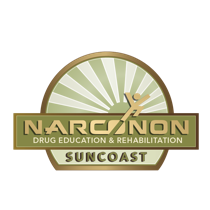The Benzodiazepine Epidemic is Worse than the Opiate Epidemic

Opiates this and opiates that, that’s all you hear about these days. I’m not saying that opiates aren’t a big deal, but it seems all we ever come across are stories of overdoses, pregnant women needing Narcan, crime rates running rampant, and doctors losing their licenses and going to jail because of shady prescribing practices. That’s the state of affairs currently and while opiates are making all the news headlines, it seems as though the American people have somewhat ignored the benzodiazepine epidemic. Many people don’t realize that there’s a huge benzodiazepine problem in the U.S. alongside the opiate epidemic and methamphetamine epidemic. It’s easy to pay attention to all the news headlines, but realistically, there’s a lot more going on than just what’s being reported in the media. Our friends and family are at more of a risk for addiction than ever before and it’s up to keep them safe and prevent them from using drugs in the first place.
When many people think of opiate addicts, I personally believe that they generally think of an addict who is only addicted to only one drug. They use pills or heroin, and that’s it. The fact of the matter is that most addicts are poly-drug users, meaning they use more than just their drug of choice and may actually be addicted to 2 or 3 different substances. And it’s no secret that many opiate addicts also abuse benzodiazepines or “benzos.” Benzos are drugs like Klonopin, Valium, and Xanax and are considered tranquilizers and slow down the nervous system. They’re often prescribed by doctors for anxiety and sleep and many doctors will needlessly prescribe them to people who might not need it.
“How is that possible,” you might ask.
Anxiety, like pain, is a very odd condition because it’s not quantifiable and you can’t run a lab test to see its presence. It’s solely up to the patient, for the most part, to report the condition. Because of this, many addicts fake pain and anxiety disorders because they know most doctors will give them a prescription for it because the doctors can’t say “well your labs show that you’re not in pain and don’t have anxiety, so I can’t give you anything.”
One very alarming part of the rising benzo problem is the fact that a lot of addicts are mixing opiates with benzos to enhance the high they get from the painkillers. What this also does is increases the threshold for overdose by causing a higher risk of respiratory arrest and death. The National Institutes of Health/NCBI recently found that there has been a huge increase in addicts being admitted into treatment centers who are abusing both benzos and opiates. In fact, the increase was by 570% from 2000 to 2010. The interesting part is that admissions into drug rehab for all other substances actually decreased during the same time period, which means benzos and opiates are not only the most popular drugs out there, but they’re what most people are addicted to and mix together.
According to recent data released by the National Institute on Drug Abuse (NIDA), deaths related to benzos rose at a greater rate than deaths caused by opiates between the years 2001 and 2014.
But to most people, this went completely unnoticed. I definitely had no idea this was going on and I’m sure lots of other people didn’t know as well.
It’s time we really started to take control of this problem. It’s obviously not getting any better on its own.
Sources Used:
https://www.thefix.com/are-we-ignoring-escalating-benzodiazapine-epidemic
